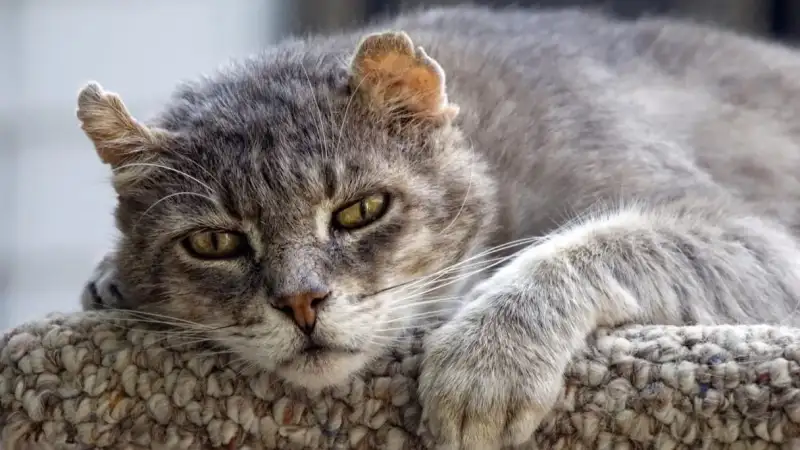
As our feline friends age, their needs change significantly. Caring for a senior cat requires a deeper understanding of their health and comfort, ensuring they enjoy their golden years. This article will guide you through essential aspects of senior cat care, using long-tail keywords to help you navigate the needs of your aging companion.
Understanding Senior Cat Health
As cats age, they often face various health issues. Understanding the common ailments that senior cats may encounter is crucial for effective care.
Keywords: senior cat health, common health issues in older cats
Common Health Issues in Older Cats
Senior cats are prone to several health problems, including:
- Arthritis: Joint pain and stiffness can affect mobility.
- Kidney Disease: This condition is common in older felines and can lead to serious health issues.
- Hyperthyroidism: An overactive thyroid can cause weight loss and increased appetite.
- Dental Issues: Periodontal disease can lead to discomfort and other health problems.
Regular veterinary check-ups can help monitor these issues and keep your cat healthy.
Nutrition for Senior Cats
Diet plays a significant role in maintaining your senior cat’s health. Adjusting their diet to meet their changing nutritional needs is essential.
Keywords: best food for senior cats, senior cat nutrition tips
Best Food for Senior Cats
When selecting food for your senior cat, consider the following:
- High-Quality Protein: Older cats need protein to maintain muscle mass.
- Low Fat: Senior cats may become less active, so a diet lower in fat can help prevent obesity.
- Added Supplements: Look for foods with omega fatty acids, antioxidants, and glucosamine to support joint health.
Consult your veterinarian to find the best dietary plan tailored to your cat’s specific needs.
Creating a Comfortable Living Environment
As cats age, they may require adjustments to their living space to ensure their comfort and safety.
Keywords: senior cat living environment, comfortable space for aging cats
Tips for Creating a Comfortable Space
- Soft Bedding: Provide soft, warm bedding to help soothe achy joints.
- Easy Access to Essentials: Ensure food, water, and litter boxes are easily accessible.
- Safe Environment: Remove any hazards, such as slippery rugs or stairs, to prevent accidents.
A comfortable living environment can significantly enhance your senior cat’s quality of life.
Regular Veterinary Care
Routine veterinary visits are crucial for monitoring your senior cat’s health and addressing any emerging issues.
Keywords: senior cat vet visits, importance of regular vet check-ups
Importance of Regular Vet Check-ups
Regular vet visits should include:
- Physical Examinations: Check for signs of health issues.
- Blood Work: Screen for conditions like kidney disease and diabetes.
- Vaccinations: Keep up with vaccinations to prevent illness.
These check-ups can help catch potential problems early, leading to better health outcomes.
Exercise and Mental Stimulation
While senior cats may not be as active as they once were, it’s still important to encourage exercise and mental engagement.
Keywords: exercise for senior cats, mental stimulation for aging cats
Exercise Ideas for Senior Cats
- Interactive Toys: Use toys that encourage gentle play.
- Short Play Sessions: Engage your cat in brief, frequent play sessions to avoid overexertion.
- Cat Trees and Perches: Provide places for them to climb and observe their surroundings.
Keeping your senior cat physically and mentally stimulated helps maintain their overall health and happiness.
Grooming and Hygiene
Grooming becomes increasingly important as cats age, especially if they become less able to groom themselves.
Keywords: grooming senior cats, cat hygiene tips
Grooming Tips for Senior Cats
- Regular Brushing: Help reduce mats and tangles in their fur.
- Nail Trimming: Keep their nails trimmed to prevent injury.
- Dental Care: Regular dental care is crucial; consider dental treats or professional cleanings.
Maintaining hygiene can improve your senior cat’s quality of life and prevent health issues.
Monitoring Behavior Changes
Paying attention to behavioral changes can be critical in identifying health issues early.
Keywords: behavioral changes in senior cats, senior cat behavior monitoring
Signs to Watch For
- Increased Hiding: If your cat is hiding more than usual, it may indicate discomfort or illness.
- Changes in Eating Habits: A decrease in appetite or increased thirst can signal health problems.
- Litter Box Issues: Changes in litter box habits can indicate urinary tract problems.
If you notice any concerning changes, consult your veterinarian promptly.
End-of-Life Considerations
As difficult as it may be, planning for your cat’s end-of-life care is essential.
Keywords: end-of-life care for senior cats, making the right decisions for aging cats
Planning for End-of-Life Care
- Discuss Options with Your Vet: Understanding palliative care and euthanasia can help you make informed decisions.
- Consider Quality of Life: Evaluate your cat’s quality of life and what steps can be taken to keep them comfortable.
- Cherish the Moments: Spend quality time with your cat, ensuring their final days are filled with love and comfort.
Conclusion
Caring for a senior cat can be a rewarding experience. By understanding their unique needs and making appropriate adjustments to their care, you can ensure they live a comfortable and happy life in their twilight years. Remember, regular veterinary visits and attention to their changing health and behavior are crucial for your senior cat’s well-being.

Comments (0)